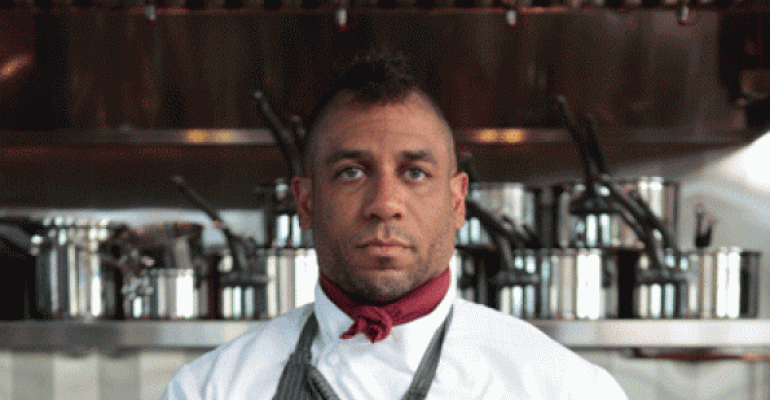Chef Russell Jackson wears a protective vest when traveling between home and work to protect himself from people who oppose his political views.
“There are extremist factions that are so incredibly violent. It’s surprising to me,” said Jackson, who is the chef of Lafitte in San Francisco, and is fighting against what he sees as an unjust law that will go into effect in California this July banning foie gras.
California Senate Bill No. 1520, which was signed into law in September 2004, bans the sale of any product produced by “force feeding a bird for the purpose of enlarging the bird’s liver beyond normal size.”
That process, which the French call gavage, is how foie gras is made. Tubes are placed in the throats of duck or geese, and corn is poured in, resulting in enlarged livers that are sold as a delicacy.
The practice is widely condemned by animal rights activists who consider the process cruel. Some opponents of SB 1520 and other foie gras advocates say the practice of gavage, which dates back to ancient Egypt, simply speeds up the liver fattening that these waterfowl’s wild cousins do naturally in preparation for their long-distance migrations.
Jackson’s chosen form of protest is a multi-course dinner series called FU Foie Gras featuring the soon-to-be-outlawed ingredient. He held the first such dinner last September.
Items on recent menus have included New York Strip with foie gras and fig purée, cured foie gras in aspic, and foie gras cannelloni.
Jackson recently discussed his views of foie gras and animal husbandry with Nation’s Restaurant News.
What bothers you about the foie gras ban?
It’s about a group of people that are inflicting their beliefs and viewpoints on me as a person, chef and Californian, over a duck liver.
Is there much demand at your restaurant for foie gras?
The dinners sell out. I could sell 100 seats every time I do a foie gras dinner. But we keep the number down to between 50 and 60 to keep the quality high and so we don’t have to use outdoor seating [and can avoid anti-foie gras protesters].
I sell 100 pounds of foie gras a week. I stick it in sandwiches and sauces, cured, braised, in ice cream, and it sells out. If people didn’t want it, we’d let it go away. And the people who love it, they don’t want to be bothered with all those hostile people. [The foie gras dinners are $89.]
Are you confronted by many angry people?
I get hundreds of e-mails every day, not to mention hundreds of people signing petitions to close my restaurant down. They act like I murdered their children. They have no idea the extreme sacrifice that I made in my life and my family to open this restaurant.
Then why don’t you stop serving foie gras?
I personally love it, and I don’t think it’s right for these loud people to be inflicting their views on my civil rights. We’ve said we’re willing to sit down and have an educated conversation with them, but what you end up getting back is rhetoric, yelling, screaming and violence.
Are there foods that you don’t serve?
We don’t serve shark here and won’t until I can procure it and butcher it from nose to tail. I won’t touch Chilean sea bass. Whale, I totally get it: I won’t serve an animal that could go extinct.
But if you look at the science, look at the practices, go to these [foie gras] farms and look at what these American companies do, there’s an awful lot of care, forethought and husbandry that goes on there. And gavage has been done for 4,000, 5,000 years, and the core process hasn’t changed for a long time.
What are you going to do once the ban goes into effect?
As chefs we’ve all been advised [not to discuss] what we will or won’t do when the laws are in place. But there’s not just a law; there’s a right and a wrong.
When you want to go after big pork and big beef and big poultry, I’ll be there with you. I’m all for ethical standards being in place, but they haven’t proven their case with foie gras.
Contact Bret Thorn at [email protected].
Follow him on Twitter: @foodwriterdiary




